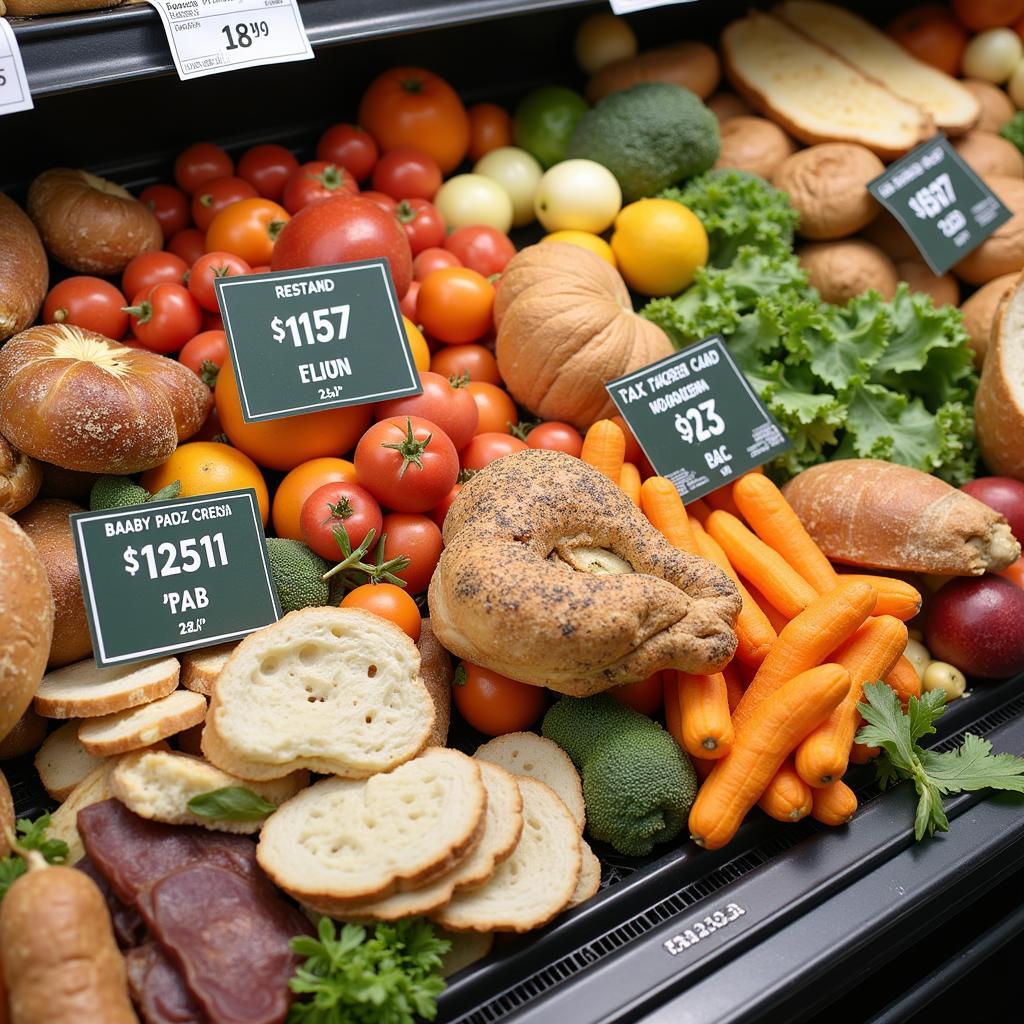Food waste taxation has become an increasingly common topic in IELTS Writing Task 2, appearing in various forms since 2019. Based on analysis of past exam questions, this environmental and economic issue has been featured approximately 3-4 times per year, making it highly likely to appear in future tests.
Similar to public health campaigns prevent diseases, this topic tests candidates’ ability to discuss government policies and their societal impact.
Let’s examine a recent exam question:
Some people believe that governments should impose additional taxes on foods that are thrown away by supermarkets and restaurants. To what extent do you agree or disagree with this statement?
Question Analysis
This is an agree/disagree essay that requires:
- A clear position on food waste taxation
- Well-developed arguments supporting your stance
- Relevant examples and explanations
- A balanced conclusion

Sample Essay 1 (Band 8.5)
While food wastage is undoubtedly a serious environmental and social issue, I strongly disagree with the proposal to impose additional taxes on discarded food from commercial establishments.
Firstly, implementing such taxation could have counterproductive effects on businesses and consumers. Supermarkets and restaurants already operate on relatively thin profit margins, and additional taxation would force them to either absorb these costs or pass them on to customers through higher prices. This could lead to increased food insecurity among lower-income populations who already struggle with food affordability.
Moreover, the root causes of commercial food waste are often beyond businesses’ immediate control. Unpredictable customer demand, strict food safety regulations, and supply chain inefficiencies all contribute to inevitable waste. Rather than punitive measures, governments should focus on supporting businesses in developing better inventory management systems and creating incentives for food donation programs.
A more effective approach would involve implementing comprehensive food waste reduction strategies. This could include mandatory food redistribution schemes, improved storage technologies, and consumer education programs. For instance, France’s successful law requiring supermarkets to donate unsold food to charities demonstrates how positive initiatives can achieve better results than punitive measures.
In conclusion, while addressing food waste is crucial, taxation is not the most effective solution. Governments should instead focus on collaborative approaches that help businesses reduce waste while maintaining economic viability.
Sample Essay 2 (Band 6.5)
Food waste is a big problem in many countries, and some people think supermarkets and restaurants should pay extra tax when they throw away food. I disagree with this idea because it can cause more problems.
First, if businesses have to pay more tax for wasting food, they will increase their prices. This means customers will need to pay more money for food. Many people already find it hard to buy enough food, so higher prices will make their life more difficult.
Second, sometimes restaurants and supermarkets cannot avoid wasting some food. For example, when customers don’t come on a rainy day, restaurants cannot sell all their food. Or when fruits and vegetables go bad quickly, supermarkets must throw them away. It’s not fair to make them pay extra tax for these situations.
I think there are better ways to solve the food waste problem. The government can help businesses give extra food to poor people or make it into animal feed. They can also teach people how to buy and use food better.
In conclusion, I believe taxing food waste is not a good solution. We need to find better ways to help businesses reduce waste without making food more expensive for everyone.
Analysis of Band Scores
Band 8.5 Essay Features:
- Sophisticated vocabulary and complex structures
- Clear, logical organization
- Well-developed arguments with specific examples
- Cohesive devices used effectively
- Formal academic tone throughout
Band 6.5 Essay Features:
- Simple but clear arguments
- Basic vocabulary with some errors
- Limited use of complex structures
- Basic organization present
- Some development of ideas
Key Vocabulary to Remember
- food insecurity (n) /fuːd ɪnsɪˈkjʊərəti/ – lack of reliable access to sufficient food
- punitive measures (n) /ˈpjuːnɪtɪv ˈmeʒəz/ – actions intended to punish
- redistribution schemes (n) /ˌriːdɪstrɪˈbjuːʃən skiːmz/ – programs for sharing resources
- counterproductive (adj) /ˌkaʊntəprəˈdʌktɪv/ – having the opposite effect to what is intended
- inventory management (n) /ˈɪnvəntri ˈmænɪdʒmənt/ – control of stock and supplies
For practice, try writing your own essay on this topic and share it in the comments section. Consider these alternative questions:
- Should households be fined for excessive food waste?
- What role should education play in reducing food waste?
- How can technology help reduce food waste in the supply chain?